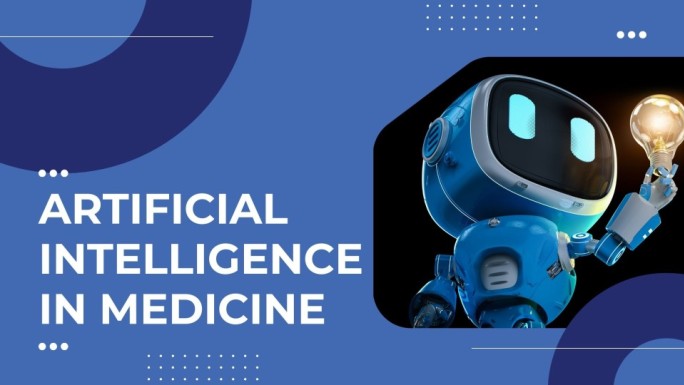Discover Top 10 Benefits of Hospital Information System
Hospitals are undergoing a revolution in patient care and operational efficiency. Hospital Information System (HIS) is the backbone of this transformation. It’s a powerful tool that streamlines workflows, strengthens communication, and empowers better healthcare decisions. But what exactly makes HIS so beneficial?
Let’s discover the top 10 advantages that HIS brings to both patients and healthcare providers, transforming the way hospitals deliver and manage care.
1. Improved Patient Care and Outcomes
One of the most significant benefits of Hospital Information Systems (HIS) is improved patient care and outcomes. HIS provides healthcare providers with a centralized view of a patient's medical history, allergies, medications, and test results. This allows for more informed treatment decisions, reduces the risk of errors, and facilitates smoother communication among doctors, nurses, and specialists. Ultimately, HIS empowers healthcare professionals to deliver more effective and personalized care, leading to better patient health outcomes.

2. Increased Efficiency and Productivity
Hospital Information Systems (HIS) are champions of efficiency and productivity. Repetitive tasks like appointment scheduling and billing are automated, which helps staff save time and concentrate on patient care. Improved patient flow management reduces wait times and keeps things running smoothly.
Additionally, HIS optimizes resource allocation, ensuring doctors, nurses, and equipment are used effectively. These improvements lead to a more efficient hospital environment, allowing staff to focus on what matters most – providing excellent patient care
3. Enhanced Financial Performance
A well-implemented Hospital Information System (HIS) can significantly enhance a hospital's financial performance. HIS automates administrative tasks, streamlining processes and reducing associated costs. Revenue collection improves with faster and more accurate billing, while better inventory control minimizes waste of medical supplies. By tightening these financial corners, HIS frees up valuable resources that can be reinvested in patient care, technology, or staff development
4. Strengthened Data Security and Privacy
In today's digital age, protecting patient privacy is paramount. Hospital Information Systems (HIS) act as guardians of sensitive medical data. Secure storage and access controls prevent unauthorized individuals from accessing patient information. Additionally, HIS helps hospitals comply with evolving regulations regarding data privacy. This comprehensive approach minimizes the risk of data breaches, safeguarding patient confidentiality and fostering trust between patients and healthcare providers.

5. Heightened Patient Satisfaction
Patients today crave a more interactive healthcare experience. Hospital Information Systems (HIS) can be a game-changer in boosting patient satisfaction. Patient portals empower individuals to access their medical records and test results conveniently. Improved communication with healthcare providers fosters a sense of engagement and control.
Additionally, shorter wait times and more efficient appointments contribute to a positive overall experience. By prioritizing patient convenience and communication, HIS paves the way for a more satisfying healthcare journey.
6. Support for population health management initiatives
Hospital Information Systems (HIS) are becoming champions for population health initiatives. By collecting and analyzing data on entire patient populations, HIS helps healthcare providers identify trends and patterns.
This allows them to target specific groups with preventive care measures, chronic disease management programs, and other interventions. This proactive approach improves overall population health outcomes and fosters a more preventative healthcare system.
7. Enhanced reporting and analytics capabilities for informed decision-making
Hospital Information Systems (HIS) are transforming healthcare decision-making with their enhanced reporting and analytics capabilities. HIS not only offers basic data storage but also is a powerful tool for analyzing trends. Moreover, it can identify areas for improvement, and measure the effectiveness of treatments.
This empowers healthcare providers to make data-driven decisions on everything from patient care protocols to resource allocation. With HIS, hospitals can move from intuition-based choices to a future guided by insightful data analysis.
8. Improved disaster recovery and business continuity planning
Disasters and unexpected disruptions can severely impact a hospital's ability to deliver care. Fortunately, Hospital Information Systems (HIS) can be a lifeline in such situations. HIS facilitates improved disaster recovery and business continuity planning by enabling data backups and secure off-site storage.
This ensures critical patient information remains accessible even during outages. Additionally, HIS can streamline communication protocols and help staff adapt to alternate workflows, minimizing downtime and ensuring a smoother recovery process.
9. Streamlined accreditation and regulatory compliance processes
Hospital Information Systems (HIS) can be a game-changer when it comes to accreditation and regulatory compliance. HIS acts as a centralized hub, allowing hospitals to electronically track and manage data relevant to meeting accreditation standards. This eliminates the need for paper-based documentation and simplifies the process of providing evidence to auditors.
Additionally, HIS can generate reports that highlight areas where adjustments are needed to ensure ongoing compliance. This streamlined approach saves time and resources, allowing hospitals to focus on delivering exceptional patient care while staying on top of evolving regulations.
10. Enhanced communication and collaboration among healthcare providers
Hospital Information Systems (HIS) foster a more collaborative healthcare environment. By creating a shared platform for accessing and updating patient information, HIS breaks down communication silos.
Doctors, nurses, specialists, and other healthcare providers can access a patient's complete medical picture in real time, facilitating more informed consultations and coordinated care plans. This seamless flow of information strengthens teamwork, improves patient outcomes, and ensures everyone involved is on the same page when it comes to delivering quality care.
In conclusion
The benefits of Hospital Information Systems (HIS) paint a clear picture: a future of healthcare that's more efficient, secure, and patient-centered. From improved financial performance to enhanced communication and collaboration, HIS empowers hospitals to deliver exceptional care while optimizing their operations. As healthcare continues to evolve, HIS will undoubtedly remain at the forefront, paving the way for a more connected, data-driven, and ultimately, healthier future for all.





